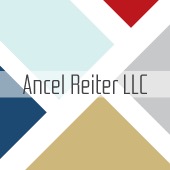
For many parents and guardians, navigating the world of special education can be challenging.
Between legal language, educational jargon, and procedural acronyms, it’s easy to feel lost. However, understanding some key concepts can help you become a more effective advocate for your child.
Here are five essential special education terms that every parent should know.
1. Individualized Education Program (IEP)
The Individualized Education Program (IEP) is a written plan designed to meet the educational requirements of a child with a disability.
It outlines the specific goals, services, accommodations, and modifications the school will provide. The IEP is customized to your child’s learning profile and is updated annually through a meeting with parents, teachers, and school staff—though at any point, you may request a meeting without having to wait a year.
Understanding your child’s IEP is critical because it serves as the foundation for the services they receive at school. Reviewing and participating in its development ensures that the plan reflects your child’s strengths and areas that need support.
2. 504 Plan
A 504 Plan provides accommodations for students with disabilities who do not qualify for an IEP but still need some level of support to participate fully in school.
Named after Section 504 of the Rehabilitation Act, this plan makes sure that students with disabilities have access to the same educational opportunities as their peers. Unlike an IEP, a 504 Plan does not require specialized instruction, but it can provide accommodations such as extra time on tests, modified seating, or access to technology, and even counseling services.
A 504 Plan is designed to support your child in accessing his/her learning.
3. Least Restrictive Environment (LRE)
Least Restrictive Environment (LRE) refers to the legal requirement that students with disabilities should be educated in the general education classroom to the greatest extent possible, fostering interaction with peers while at the same time providing appropriate services and supports to meet a student’s individualized educational needs.
LRE emphasizes inclusion, with the belief that all students benefit from diverse learning environments.
4. Free Appropriate Public Education (FAPE)
Free Appropriate Public Education (FAPE) is the right of every student with a disability to receive a free public education that appropriately meets his/her individualized educational needs.
This is guaranteed by the Individuals with Disabilities Education Act (IDEA). FAPE ensures that students with disabilities receive the necessary services, such as therapies, specialized instruction, and accommodations, to make meaningful progress in their education.
5. Related Services
Related Services refer to the additional support services that students with disabilities might receive as part of their educational programming.
Related Services may include Speech Language Therapy, Occupational Therapy, Counseling Services, Physical Therapy, Special Transportation, and aide support, among other things. Related Services are detailed in a student’s IEP Plan, and should include the type of Related Service, number of minutes, and how the Related Service will be delivered to a student.
By familiarizing yourself with terms like IEP, 504 Plan, LRE, FAPE, and Related Services, you can better advocate for the support your child is entitled to. When you understand these terms, you’ll be able to engage more effectively in your child’s education and help secure the services they need to succeed.
About Ancel Reiter LLC
Whether through Special Education Legal Representation or Child & Family Advocacy Services, our central goal is to empower parents and their children with the knowledge to find success at school, at home, and in the community. Our legal practice focuses on special education law and related issues in the greater Chicago area: Cook County, Lake County, DuPage County and throughout Illinois.
For more information, contact us today.

